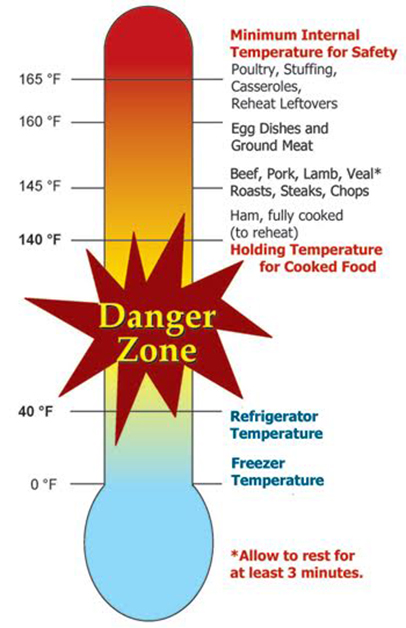Welcome to SJGLE.com! |Register for free|log in
Welcome to SJGLE.com! |Register for free|log in

Related Searches: Tea Vitamin Nutrients Ingredients paper cup packing
As Americans gear up to celebrate Labor Day with outdoor gatherings, barbecues, and picnics, everyone should prioritize food safety to avoid the risk of foodborne illnesses. Labor Day is an ideal time for friends and families to come together, but improper food handling can quickly turn festivities into a health hazard.
Cooling and packing food
One common oversight is improper cooling of freshly cooked food. Failing to cool cooked dishes promptly can lead to rapid bacterial growth. After cooking, it’s crucial to cool food quickly and store it in shallow containers for immediate refrigeration or transportation.
Washing fruits and vegetables
Washing fruits and vegetables before cutting is essential to prevent the transfer of bacteria from the peel or rind to the flesh. After washing, store cut produce in waterproof containers or plastic wrap to ensure it cools properly before being placed in picnic coolers.

Click to enlarge. Courtesy of the USDA
Cooler location
To maintain food safety, the placement of coolers is vital. It’s advisable to keep coolers in the passenger area of a vehicle instead of the trunk, wher temperatures tend to be higher. once at the picnic site, place the cooler in the shade and cover it with a blanket, keeping it closed until it’s time to eat.
Keep cold foods cold, hot foods hot
Cold foods should remain cold, while hot foods must stay hot to prevent bacteria and pathogens from multiplying. Ice packs and frozen gel packs are essential additions to coolers, and insulated containers with boiling water can keep foods hot until serving.
Handling food and handwashing

Thorough handwashing is crucial when handling food, especially as multiple hands are involved in preparing and serving dishes. In the absence of running water, hand sanitizers and paper towels can be used, though they are not as effective. Utensils and dishes should be plentiful to prevent cross-contamination, especially when preparing meats like poultry, fish, and beef.
Proper grilling
Grilling is a popular Labor Day activity, but it also poses food safety challenges. The USDA recommends three key steps for safe grilling:
Handling Leftovers To ensure food safety with leftovers, remember the two-hour rule: perishable items should be refrigerated within two hours (or one hour in temperatures above 90°F) to prevent bacterial growth. Use small, shallow containers for quicker cooling and freeze or consume leftovers within four days.
Reheating When reheating, cover and rotate food for even heating, especially in the microwave. Reheat sauces, soups, and gravies to a rolling boil. Slow cookers should not be used for reheating. Leftovers are safe to eat when they reach an internal temperature of 165°F.
Traveling food safety tips
For those hitting the road this Labor Day, the USDA offers the following tips to ensure food safety while traveling:
By following these food safety guidelines, Americans can ensure a healthy and enjoyable Labor Day celebration, free from the risks of foodborne illnesses.
For additional food safety inquiries, individuals can contact the USDA Meat and Poultry Hotline at 888-MPHotline (888-674-6854) or chat live at ask.usda.gov from 10 a.m. to 6 p.m. EDT Monday through Friday.
E-newsletter
Tags